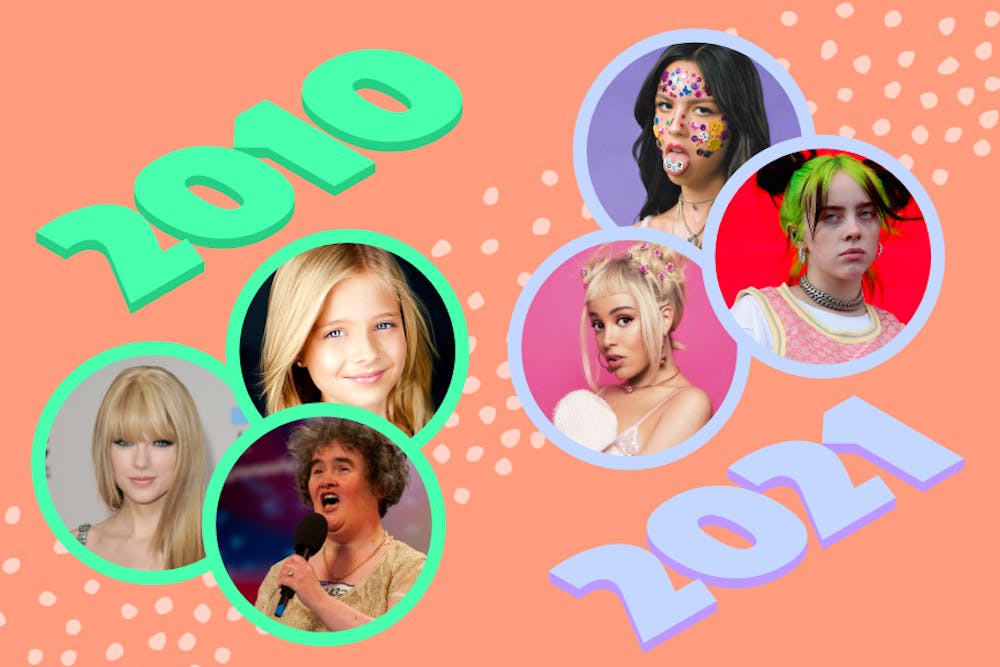On Aug. 23, Billboard reported that Billie Eilish’s Happier Than Ever led their Top 200 chart, which tracks the most popular albums in the country per week based on “multimetric consumption.” Doja Cat’s Planet Her and Olivia Rodrigo’s debut album SOUR followed Eilish on the Aug. 28–dated chart. This ranking garnered attention, as it was the first time solo female artists dominated in over a decade.
The last time the top three albums were fully credited to solo women was in December 2010, when Susan Boyle, Taylor Swift, and Jackie Evancho stood at the top.
Even though an all–female Billboard Top 200 had previously happened, the 2021 albums stand in stark contrast to those of 2010: The Gift, Speak Now, and O Holy Night. This is not to discredit Boyle, Swift, and Evancho of their achievement. However, it’s important to look at the broader context that allowed these six albums to rise to the top at their given times.
Primarily, two of the December 2010 leaders—The Gift and O Holy Night—were Christmas albums, which naturally tend to rise in popularity during the holiday season each year. Reviews of The Gift show that its success can mostly be attributed to the season; BBC described it as a “predictably comforting affair” with “seasonal standards” and “classic covers,” acknowledging that it “is not as touching or grabbing as it could be.”
This context behind these artists’ success in 2010 makes the 2021 charts all the more impressive. Rolling Stone recently reported that a Columbia Business School study suggests that women artists—and women engaged in creative fields overall—tend to be “generally more creative than men.” They determined that women produce more novel songs that are more “musically fresh and unusual.”
Despite this finding, there continues to be a troubling gender gap in popular music. Just in 2018, there were three times as many male acts in the Official Chart Company’s top 100 songs than female artists.
In addition to research data, female artists have publicly spoken out about their need to work harder to be recognized in the industry. Taylor Swift has famously said that “female artists have reinvented themselves 20 times more than the male artist.” This is evident in the way her music has changed over time—the 2010 chart leader Speak Now differs significantly in sound from her most recent release, evermore. More than anything, in addition to continuously working on their sound, female artists often have to pay more attention to their looks and public behavior.
Although this issue is being discussed more publicly, it continues to be difficult for female artists to achieve success without features or collaborations. For this reason, Eilish, Doja Cat, and Rodrigo’s success in the recent charts is notable—and hopefully a trend that continues.
In addition to rising in the charts as solo artists, they were able to do this with albums that explored themes of empowerment and individuality. In Happier Than Ever, Eilish displays her mature sound, using her songs to “assert her agency and self–worth.” Just the title of Doja Cat’s Planet Her gives us an insight into its content—it’s all about her and her “exquisitely strange and spectacularly camp world.” For Rodrigo, her debut album was a successful introduction to her melancholic songwriting, using a devastating breakup to explore relatable feelings of insecurity.
Even though this all–female ranking is significant at the moment, it shouldn't have to be. As young female artists continue to amass recognition, statistics similar to the Aug. 28 chart will hopefully become more common.







